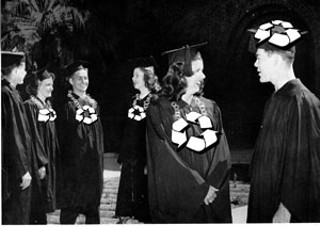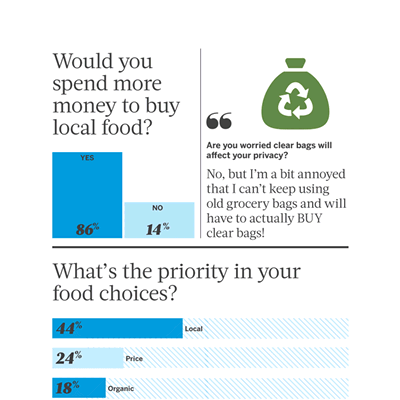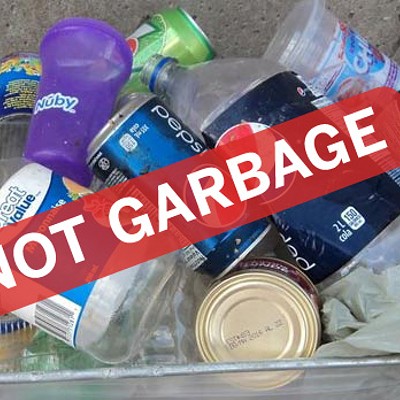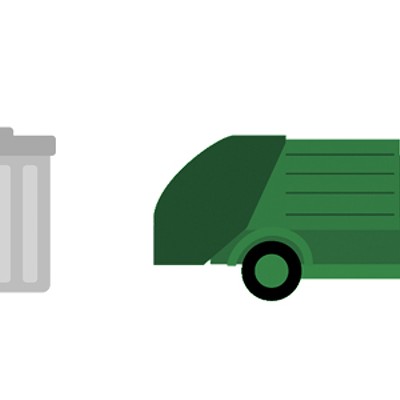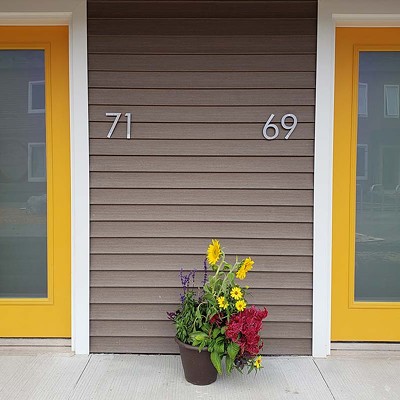Ask university students about sustainability, and it’s clear they are the ones doing the teaching. “It isn’t just about saving one tree. It’s about our community,” says Kaley Kennedy, External Vice President of the King’s Students’ Union (KSU).
In 1987 the UN called sustainability “the ability to meet the needs of the present without compromising the ability of future generations to meet their own needs.” They called on society to launch groundbreaking global movements to create a sustainable world.
Twenty years later, that movement has failed to materialize, and so students are taking up the cause. Establishing the campus sustainability movement, they want to achieve the sustainable world promised to them at birth.
Mirroring the UN’s lack of response, universities have been slow to rise to the challenge. In contrast, students are determined to turn their administrators’ heads.
“The KSU has been very active in promoting a sustainable lifestyle even when the university has been somewhat reluctant,” says Kennedy. Purchasing 100 percent post-consumer paper and negotiating a discount for students who use reusable mugs and containers in the campus cafeteria, the KSU is leading by example.
Believing sustainability starts with individuals and their communities, students see campuses as catalysts for change.
“If a university can show that a technology or idea can be successfully implemented on campus and has research to back it up,” says Emily Rideout of Dalhousie’s student sustainability group, SustainDal, “then it provides a positive example to the rest of the community.”
Despite their successes, student initiatives face the challenge of constant turnover. Politically savvy students are overcoming this by working with university administrators to ensure their hard-fought changes remain after they graduate.
“We realized that if we wanted to make serious changes at Dal, we would have to have permanent positions at both the student and administrative level that were dedicated solely to enabling the campus sustainability movement,” explains Rideout.
In 2007 Dalhousie students lobbied the university for an administrative sustainability coordinator, and approved a $2 annual fee from every full-time student to create a parallel Sustainability Office within their students’ union. The offices are working to reduce paper use and to purchase sustainable paper on campus, backing up student campaigns with institutional policy.
Students are also extending their work to the broader community.
“We see building relationships and working on sustainability together as the most effective and efficient way to make these things happen,” says Laura Simms, of the Saint Mary’s University Environmental Society, which recently conducted a solid-waste survey with Clean Nova Scotia, organized a film series on climate change and led a community clean-up.
Caring about communities, students are emphatic about the pursuit of social justice. “Sustainability is so overarching that it needs to be an aspect of everything we’re talking to the university about,” says Kennedy. “Even tuition, fees and access, if you’re talking about social sustainability. Financial barriers shut students out of university and result in ongoing inequalities.”
Simms, Rideout and Kennedy recently joined over 100 like-minded youth at the 2008 Atlantic Sustainable Campuses Conference in Moncton, NB, where students shared their campus sustainability experiences and discussed new ways to create a better world.
Twenty years after the UN’s call to action, it is youth who are working to create a sustainable planet, and they are challenging the rest of society to join in. “If not us, then who? If not now, then when?” asks Rideout. Says Simms, “Every single person has a responsibility for being part of the solution.” Kennedy explains, “Anytime you enter into a community there are certain responsibilities you take on. It’s about putting in as much as you take out.

